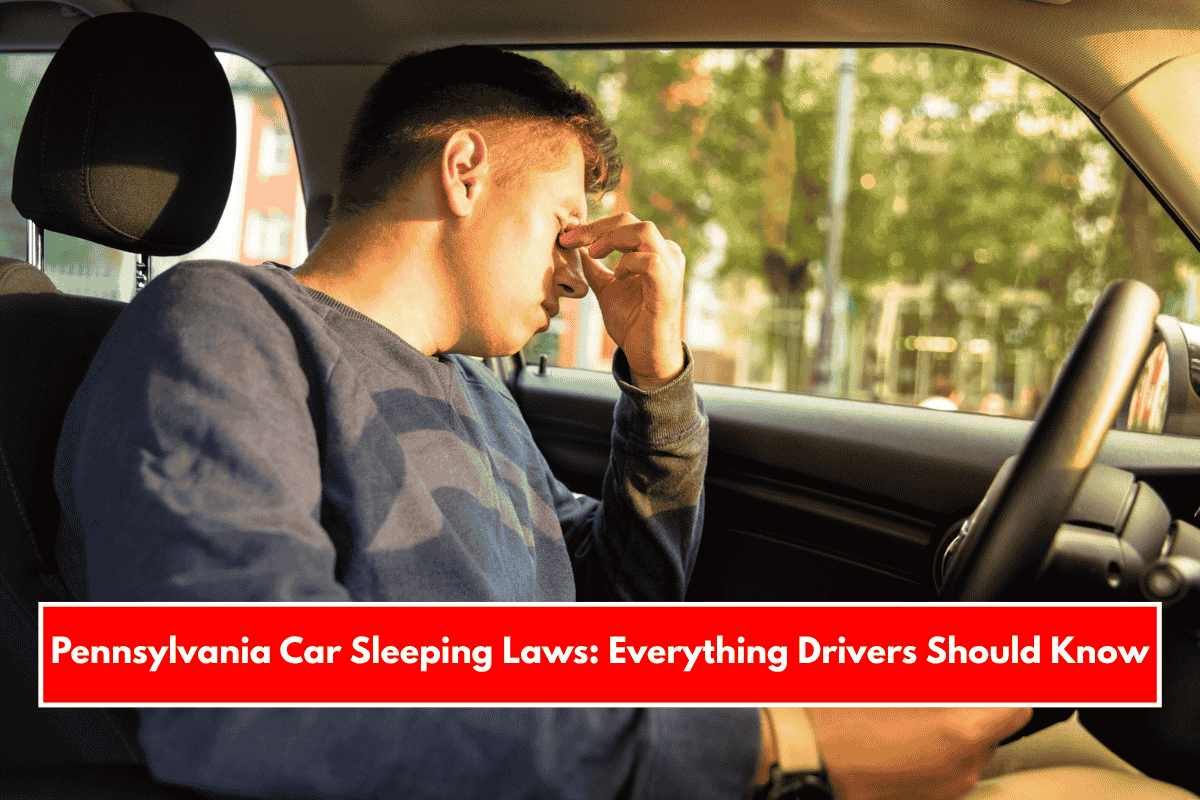Sleeping in your car in Pennsylvania is a nuanced topic, with rules that vary depending on location, circumstances, and—most importantly—your sobriety. Here’s a comprehensive guide to what every driver should know about car sleeping laws in the state.
General Legality of Sleeping in Your Car
- It is not inherently illegal to sleep in your car in Pennsylvania, provided you are parked legally and not violating local ordinances or posted restrictions.
- The Pennsylvania Turnpike Authority allows parking (and by extension, sleeping) in cars, RVs, or trailers at designated service plazas for up to 24 hours.
- In Pittsburgh, legal street parking for up to 72 hours is permitted, but other municipalities may have stricter rules or issue tickets for overnight vehicle stays or repeat violations.
- At roadside rest areas, sleeping in your car is allowed only in a legally parked vehicle and typically for no more than 2 hours, unless otherwise posted. Vehicles left unattended for more than 24 hours may be considered abandoned and subject to removal.
Restrictions and Local Ordinances
- Many cities and towns have their own rules regarding overnight parking and sleeping in vehicles. Some restrict overnight stays or prohibit using vehicles as living spaces, especially on public property or city streets.
- Always check posted signs and local regulations before deciding to sleep in your car, as penalties for violating local ordinances can include fines or being asked to move.
Sleeping in Your Car While Intoxicated: DUI Risks
- Pennsylvania has strict DUI laws that go beyond just driving. You can be charged with DUI even if you are only sleeping in your car while intoxicated.
- The law focuses on whether you are in “actual physical control” of the vehicle. This means you can be charged if you are found asleep in the driver’s seat with the keys in your possession, even if the engine is off and you had no intention of driving.
- Courts often interpret “actual physical control” broadly. Simply having the ability to start and operate the vehicle while intoxicated is enough for a DUI charge.
- Defenses such as claiming you were not intending to drive rarely succeed in court if you are in the driver’s seat and have access to the keys.
How to Reduce Legal Risks If You Must Sleep in Your Car While Intoxicated
- If you have no other option, take steps to demonstrate you are not in control of the vehicle:
- Move to the back seat or passenger seat.
- Place the keys in an inaccessible spot (e.g., locked in the trunk or glove compartment).
- Avoid sitting in the driver’s seat at all costs.
- Even with these precautions, there is still a risk of being charged, so the safest option is always to arrange alternative transportation or lodging.
Rest Area and Turnpike Rules
| Location Type | Max Duration Allowed | Notes |
|---|---|---|
| Turnpike Service Plazas | 24 hours | Sleeping in vehicles is permitted in legally parked spots |
| Roadside Rest Areas (Interstate) | 2 hours | Sleeping only in legally parked vehicles; no camping/tents |
| Roadside Rest Areas (Non-Interstate) | 2 hours (no dusk-dawn parking for commercial vehicles) | Additional restrictions may apply |
Key Takeaways
- It is generally legal to sleep in your car in Pennsylvania if you are parked in a permitted area and follow local ordinances.
- Sleeping in your car while intoxicated can result in a DUI charge if you are considered in “actual physical control” of the vehicle, regardless of whether the engine is running.
- Check local rules wherever you park, as city and county ordinances may be stricter than state law.
- Rest areas and Turnpike service plazas have specific time limits and rules, so always observe posted signs and regulations.
- To avoid legal trouble, never sleep in your car while intoxicated if you can avoid it; use a designated driver or ride-sharing service instead.
“If you choose to sleep in your car while intoxicated, it’s important to take steps to ensure that you are not in actual physical control of the car, such as removing the keys and moving to the back seat. Remember, it’s always better to find a designated driver or call a ride-sharing service to avoid getting into any legal trouble.”
By understanding these laws and local nuances, drivers can make informed decisions and avoid unnecessary legal complications while on the road in Pennsylvania.
Sources:
- https://ciccarelli.com/the-truth-about-sleeping-in-your-car-and-dui-charges-in-pennsylvania/
- https://wpst.com/car-drunk-pennsylvania-dui/
- https://reolink.com/blog/is-it-illegal-to-sleep-in-your-car/
- https://www.jackery.com/blogs/knowledge/is-it-illegal-to-sleep-in-your-car-what-states
- https://www.pacodeandbulletin.gov/Display/pacode?file=%2Fsecure%2Fpacode%2Fdata%2F067%2Fchapter443%2Fchap443toc.html&d=













